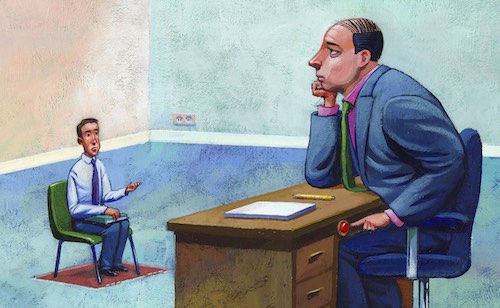Success Advice
Here’s How To Be More Chilled Out: Get More Sleep.

If you study productivity and write about it a lot as I do, people assume you must work 18 hour days every day.
I don’t work 18 hour days. I’m human. I’m normal.
Amongst my successful friends who have started businesses and made some serious cashola, they actually do the opposite.
They’re focused.
And they get a good night’s sleep.
Arianna Huffington has recently brought to light how important sleep is and what you can do to increase the quality of it. She preaches turning your phone off a few hours before bed and the art of blackening out all natural light from entering your bedroom.
She also advises gradually winding down the day with activities that are good to do before bed like reading.
The image I’m presenting here though is the opposite of what you see on social media with the “Hustle until your dead” picture quotes and entrepreneurs telling you to work your face off (what does that even mean?).
Somehow, we’ve fallen for the myth that minutes spent on a task equals the result. That’s total BS though. I sit next to people in an office every day that look like they are working their butts off, but when you actually look at what they’re doing, they’re making the following mistakes:
– Being taken over by small talk and distractions
– Trying to do too many things an executing on nothing
– Trying to look busy as if someone actually cares
– Doing things the old way rather than innovating and finding a faster way
My sleep story.
I won’t bore the pants off you. I felt tired and went to the doctor. I tried everything until someone said, “Tim how many hours do you sleep?”
I had to think about it and then I said “6-7 hours a night.”
That sounded like the average and like it should be plenty. What I didn’t realize was that it comes down to the quality of sleep and the number of hours is often different for each of us.
I cranked up the hours of sleep to eight and ever since I’ve felt heaps better. I’m now more focused and I don’t wake up yawning a lot in the morning.
Blacking out my windows and changing my pillow to a bamboo foam one also helped.
Here’s some things I learned about sleeping along the way:
1. It’s about discipline.
We can all go to bed an hour earlier and experiment with a bit more sleep. You have to make it a must (just like your goals) to execute and get the results. That takes discipline.
“Once you see the benefits through sleeping enough, you should be able to develop the willpower to go to bed earlier and stop working, or watching your TV that will never make you successful”
Sleeping is a decision and it will help you in the long term.
2. Napping helps too.
That might sound completely ridiculous but it really does help. I’m lucky enough to have nap chairs at the office I work in. On a particular day, if I feel extra tired and find myself getting pissed off easily, I go and have a 15-minute nap at lunchtime. Sometimes I do meditation instead – depends on how I feel.
3. Young adults need this advice the most.
Many interns and young adults who are in the first few years of their career need this advice the most.
“There’s this myth that if you get good grades and work longer than everybody else, you’ll climb to the top of the ladder and be successful. This concept is completely wrong”
 Good grades mean you can recite other people’s information from a book. Whether you can think, make decisions, be creative and add value to the business world has nothing to do with fact’s and ideas you’ve memorized.
Good grades mean you can recite other people’s information from a book. Whether you can think, make decisions, be creative and add value to the business world has nothing to do with fact’s and ideas you’ve memorized.
Also, take note of the senior leaders – I have. They typically roll into the office last and are the first ones to leave between 3-4pm. They’re not lazy; they’re just adding value which is the only measure of business success.
You’ll never be asked in a job interview to provide a timesheet of how many hours you worked or to brag about working late. In fact, if you mention that you work long hours, the HR team will think there’s something wrong with you and that you can’t manage time.
4. The mind must be chilled to work in your favor.
A rested mind makes better decisions and is less stressed.
A mind that is tired gets angry easily, makes poor decisions and has no focus.
There’s nothing better than having the empty space and efficiency of a mind that has been adequately rested like a well-rested steak, in an overnight marinade that’s just been placed on the BBQ (I’m Aussie so excuse the barby analogy). Okay, I’m Vego too, so that’s enough of that!
Bonus: My single best productivity hack.

This one won’t surprise you at all: Wake up early. After a good night’s sleep, waking up early allows you to spend those first few hours when your energy levels are high, on the one or two goals that are most important to you.
I find I’m more chilled when I spend the first few hours of my day being productive and working on my passion (blogging). It means for the rest of the day, I’m chilled because I know I’ve achieved at least one thing. Anything I achieve after the early morning is a bonus.
Not a bad way to live your days out don’t you think?
“My biggest enemy is distractions and the only time I seem to avoid them is early in the morning”
At 5 am, there’s no one emailing me, ringing my phone or telling me to clean up mess.
The thing is that I can only wake up early if I go to bed early and get a good night’s sleep. Getting more sleep is the antidote to waking up early if that’s something you struggle with.
There’s no point waking up early though if you’re tired because you won’t be productive. You’ll fumble around and procrastinate rather than working on your goals.
***Closing Thought***
Try getting more sleep for yourself. Don’t pretend you like being tired every day because deep down you know it’s sabotaging your success and making you lazy. The ancient art of sleeping more is back in fashion and the time is now to take advantage of it.
Instead of “Hustle till you die,” try this new mantra: “Execute with energy.”
If you want to increase your productivity and learn some more valuable life hacks, then join my private mailing list on timdenning.net
Business
Scaling a Business? Here’s What Usually Goes Wrong
Before you hire, expand, or chase bigger revenue, here’s what every founder needs to fix to scale without losing control, culture, or quality.

Growing a business is the dream. But scaling one? Honestly, that is a completely different reality. (more…)
Personal Development
From Classroom to Boardroom – How to Transition Successfully
Moving from classroom to corporate? Here’s how to navigate career transitions, master workplace culture, and stand out in the boardroom.

The transition from academic life to corporate work is major and often tough, requiring careful planning and preparation. (more…)
Did You Know
This Move Can Help You Keep More of Your Income
What if keeping more of your income wasn’t about earning more, but choosing a smarter place to live?

Living more cheaply often makes the biggest difference when money is tight. If rent feels too heavy or bills climb faster than expected, changing where you live might help a lot. (more…)
Business
How to Build a Brand That Actually Connects (For Businesses of Any Size)
Brand growth in 2026 isn’t about shouting louder; it’s about clarity, consistency, and human connection that customers genuinely trust.

In the middle of a busy workday, it’s easy to view brand building as a luxury. Honestly, we often treat it like a coat of paint we apply after the house is built. But as we navigate the landscape of 2026, it’s become clear that branding is actually the foundation. (more…)
-

 Business4 weeks ago
Business4 weeks agoWhy Entrepreneurs Should Care About AI Automation Testing
-

 Business4 weeks ago
Business4 weeks agoWhat Every Business Owner Should Know Before Investing in API Integration
-

 Business4 weeks ago
Business4 weeks agoWhy Smart Entrepreneurs Are Quietly Buying Gold and Silver
-

 Business3 weeks ago
Business3 weeks agoHow Smart Brands Use Instagram Data to Outperform Competitors
-

 Business3 weeks ago
Business3 weeks agoThe Paradox of Modern Work: Can Tech Make Us More Human?
-

 Change Your Mindset2 weeks ago
Change Your Mindset2 weeks agoThe Hidden Reason You Can’t Stay Consistent
-

 Entrepreneurs2 weeks ago
Entrepreneurs2 weeks agoThe Six Pillars That Ground Purpose-Driven Leadership (The Berenyi Life Blueprint)
-

 Change Your Mindset2 weeks ago
Change Your Mindset2 weeks agoThe Real Psychology Behind Quitting Too Soon





























1 Comment